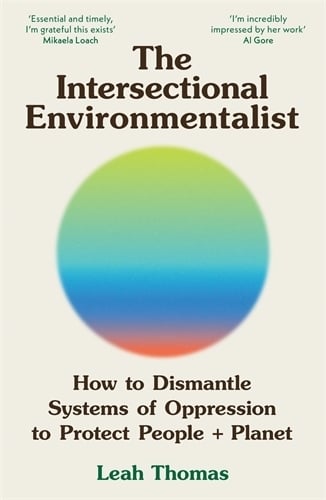The Intersectional Environmentalist is a book that explores the intersection of environmentalism and social justice. The reviewer found the book to be insightful and thought-provoking, highlighting the importance of considering environmental issues within the context of social and racial justice. They appreciated the book's focus on practical solutions and its call to action for readers to become more engaged in environmental activism.
The Intersectional Environmentalist is a book that delves into the complex relationship between environmentalism and social justice. The reviewer found the book to be a valuable resource for understanding how environmental issues are intertwined with issues of race, class, and gender. They particularly appreciated the book's emphasis on the need for environmentalism to be inclusive and accessible to all people, regardless of their background or identity. The reviewer also noted that the book provides practical advice and strategies for readers to become more involved in environmental activism, making it a useful guide for anyone looking to make a difference in the world. Overall, the reviewer found the book to be a powerful and inspiring call to action for a more just and sustainable future.
Quick quotes
The book highlights the importance of considering environmental issues within the context of social and racial justice.
They appreciated the book's focus on practical solutions and its call to action for readers to become more engaged in environmental activism.
The reviewer found the book to be a valuable resource for understanding how environmental issues are intertwined with issues of race, class, and gender.
